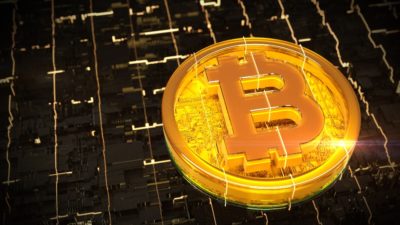At the heart of the ongoing Ripple Labs lawsuit is a question:
Is XRP (CRYPTO:XRP) a security?
If it is, then Ripple Labs will be held liable for selling securities without registration.
If it’s not, then the company will be able to go back to life as usual.
This has huge bearing on the entire cryptocurrency market. If XRP is a security, then other cryptocurrencies are as well. In common law countries, legal decisions set precedents. That means that the ruling applies in situations similar to the one the initial lawsuit was based on. Therefore, if the U.S. SEC was to get XRP regulated as a security, it would gain regulatory power over other cryptocurrencies too.
Fortunately, it doesn’t look like that will happen. Most coverage of the SEC v. Ripple lawsuit suggests that Ripple is winning. The SEC’s own officials are on record as saying that cryptos aren’t securities, and the SEC seems to be failing to get that testimony excluded from discovery. Given this fact, it looks like XRP won’t become a security. In this article, I will further bolster that claim by showing that XRP does not meet the definition of a security.
Characteristics of a security
The U.S. Securities Act defines the term “security” by a list of examples. The definition does not have any qualitative criteria, but instead consists of the word “any” followed by terms like:
- Stock
- Bond
- Option
- Warrant
- and dozens more
It looks like the lawmakers who drew up this definition intended for it to be as comprehensive as possible. It includes pretty much every common financial asset that existed before cryptocurrency was invented. What it doesn’t include is:
- Real assets (e.g., houses, precious metals)
- Currencies
Based on existing U.S. securities law, currencies (as in the money itself) are not securities. Some “cash equivalents” like Treasuries and GICs are. But the physical cash itself isn’t. Given that cryptocurrencies are primarily used to buy and sell things, they seem to fit the definition of cash better than that of securities. There is serious debate as to whether cryptocurrencies truly are money (their prices are too volatile to serve as useful units of account), but they are closer to money than they are to anything on the list of securities in the U.S. Securities Act. So, they basically are not securities.
Why XRP is not a security
XRP is not a security because, like most cryptocurrencies, it does not meet the definition of the term in question. First, on the most literal level, the category of asset it belongs to is not included in the definition. Second, there is one asset class that it may belong to (money), and that asset is not a security. Third, and finally, the SEC, who are suing to have XRP regulated as a security, have been caught behind closed doors saying that cryptocurrencies aren’t securities. Unless XRP is qualitatively different from other cryptocurrencies, it is not a security, based on the SEC’s past claims.
It seems like a pretty clear case: XRP isn’t a security. Whether it’s money is debatable. But a security it is not.








